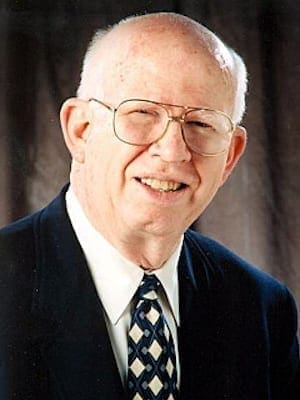If you want to change your life, change your attitude. If you want to change your relationships, change your language. If you want to change the world, change the way you communicate with it.
What we have known and loved in the past is just that – past. We have romanced our newspapers, grown comfortable with the major news outlets and relished our telephones. That world has evaporated.
With the advent of cable television, cell phones, Twitter, Facebook, LinkedIn and all of the other social media, anyone anywhere is a potential reporter. With that has also gone credibility. Anyone can say anything. After it is out there, corrections are useless. Reputations are ruined, institutions are damaged and facts are often trampled. We are dealing with an out-of-control beast that is in its infancy and we haven’t seen anything yet. This is the beginning, not the end.
There is no such thing as privacy or an off-the-record remark. Everything is on the record and is out there for eternity. If you do something stupid as a young person, it will be exposed when you run for president. If you engage in an illicit affair, it will be used in the divorce hearing. If you make an unguarded remark, it will be played when you are being interviewed for a job or promotion. Even our brilliant Founding Fathers never dreamed of this kind of “freedom.”
We were privy to the riots in Iran because there were cell phones. We were even in the mines in Chile. We were able to watch the oil spill in the Gulf because of a live feed.
To quote an old song: “He sees you when you’re sleeping. He knows when you’re awake. He knows when you’ve been bad or good.” The last line is the lesson for today’s and tomorrow’s age: “So be good for goodness sake.” There is no longer any question about how he knows. He knows. Add to that all the possible chicanery in splicing and dicing both sound and video, and you have a formula for disaster.
Just before class, one of my graduate students said, “Dr. Carnell, you are all over Google.” I came home and Googled myself. I learned that I died in Alabama in 1961 and again in Texas in 1989. I was arrested in 2010 and made the honor roll the same year in Illinois. Google says I’ve lived an interesting life. Now someone should ask, “Will the real Mitch Carnell please stand up?”
The irony in all of this is that the technology that brought us such enormous freedom also imprisons us. We are no longer free to blow off steam, go where we want to and associate with whom we please.
Why?
Because there is someone close by with a cell phone or video recorder to capture the moment for history. If that is not enough, even the old records are now available.
My high school friend, Buck King, sent me copies of my being at my grandmother’s birthday party when I was 1 year old. That was long before I died in 1961. He found this bit of history on the Internet. The carefree world of our recent past is no more. How do we adjust to the new reality?
A mind shift is required. We must realize that nothing is private. There are no secure lines or enclosures. We live in the public eye. You may think you are unimportant and of no consequence, but think again.
We all are related to someone, and we all have friends. The person doing the capturing of information may not be interested in you, but may be very interested in those with whom you associate.
Jeremiah Wright had no idea that his parishioner would one day be a candidate for president of the United States. To be honest, I have been present when white evangelists said exactly the same thing or worse, but I was not running for office.
The take-away from this new world reality is that we need to live our lives keeping in mind two traditional tests from ethics courses: Would you like for your actions to be on the front page of the newspaper – or now on Facebook? And would you like for your mother to know about them?
As Christians we are guided by even higher standards. We have always known that the lives we live daily are our best testimonies to the faith we proclaim. The new reality makes our witness available to everyone now and for the foreseeable future. It gives us opportunities that we never even dreamed possible. The world will see that our faith is real, or it will see that our faith is only empty words.
We should welcome the possibilities.
Mitch Carnell is a consultant in organizational and interpersonal communication. He is the editor of “Christian Civility in an Uncivil World” and an active lay member of First Baptist Church of Charleston, S.C.
A member of First Baptist Church of Charleston, South Carolina, he was the author of “Our Father: Discovering Family.” Mitch’s writings can be found at MitchCarnell.com.

